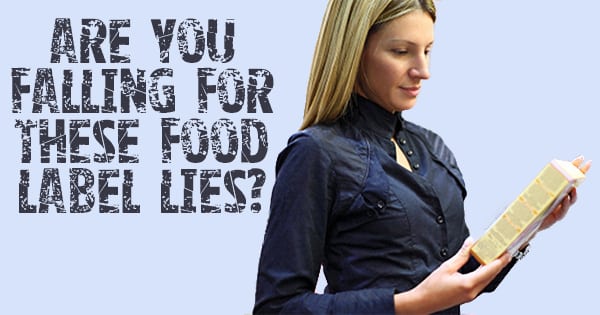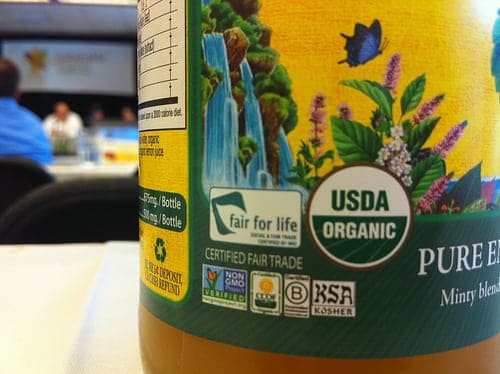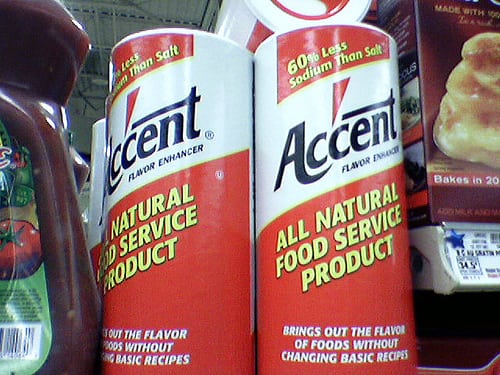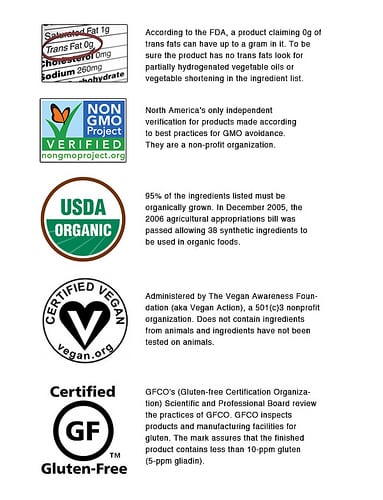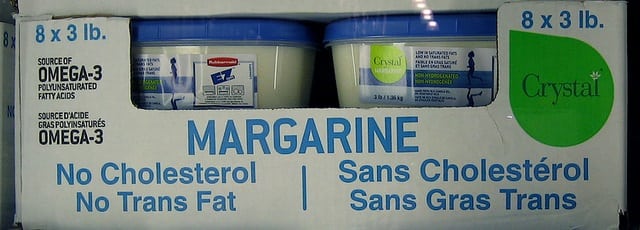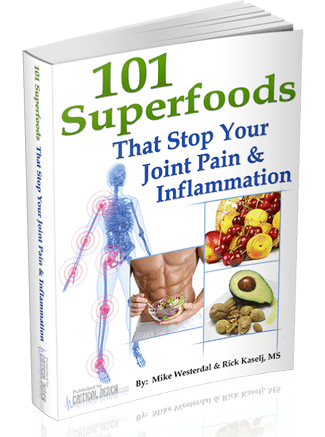
Here is the revised paragraph with the inserted phrase “Food Label Lies”:
“Food labels have gained more prominence over the years and can be a way to remain in touch with what we eat. The history of food labels dates back to the eighteenth century where the focus of these labels was to provide information about products and prevent the commerce of adulterated and misbranded drugs, foods, and drinks. However, concerns about Food Label Lies have emerged, highlighting the need for vigilance and better regulation.”
The role of food labels have since progressed to provide nutritional facts such as per serving quantities of various nutrients. Ingredients of the food and drinks are also displayed on such labels. As the push towards healthier living becomes much more than a passing phase, food and drink producers and companies are going the extra mile to try to market their products to an eager population. However, there could be elements of cleaver marketing and strategic thinking being utilized which may end up leaving the consumer with the short end of the stick.
Could there be a bit or a lot of lies in the food labels you peruse and trust? Are you falling for these food label lies? Is the act of slightly twisting the truth considered a lie?
There are interesting things that happen regarding food labelling. Actually, there is really no such thing as half a lie. With regards to food labels, something can either be true or false. If it looks like the truth, it could still be a lie. There are tricky ways through which food and drink companies try to market their products. Hence, being aware of what is out there and what marketers do to make certain parts of the product look good while extracting nutrients elsewhere could be very revealing.
It is a good idea to get informed and knowledgeable about the following food label lies.
• It’s organic!
Well, it may not really be organic. The health buzz has taken over many lives and people are now more aware of what it could mean to “live healthy”. The word organic has also gained popularity with its use being attached to various aspects of life and various items including food, drinks, drugs, clothes, body care products and also ideas or ways of thinking. The notion is that if something is organic, it is typically better than the alternative. There can be some truth in this as well.
However, what is the problem regarding attaching the term organic to food labels?
The problem is that sometimes, the item being labelled is not entirely organic. However, marketers often use clever tactics to obscure that the main ingredient may not be organic. The consumer is fooled into thinking that the entire or major component of the food or drink item is organic.
Organic foods and drinks are based on methods that provide extremely limited or no chemical fertilizers or synthetic pesticides. Food regulatory bodies may also recognize products that may have different levels of organic constituents. For example, there are products that contain 95% organic contents. If the level of organic content drops below a certain level, products need to use appropriate labels indicating the same such as a label that states that a product is “made with organic ingredients” [1]. The food or drink may be entirely organic or may only contain some organic components. There is a significant difference to note regarding what the truth actually is.
• Made With Whole Grains
Similar to organic food label lies, products are often marketed as being made with whole grains. Unfortunately, this may not entirely be true. You can see how marketers confuse or mislead people into thinking one aspect applies to the entire product.
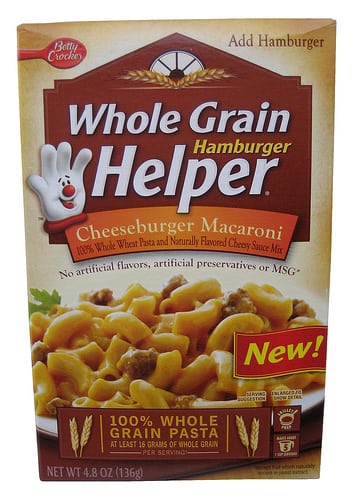
Marketers count on consumers overlooking food label details, particularly when strategic buzzwords are used on the packaging. For example, a product labeled “made with whole grains” may be enough to convince someone to buy it. However, beware of this food label lie.
The product may not be entirely whole grain and could contain many low-nutrient ingredients. For example, a product claiming to be made with whole grains may actually contain a significant amount of a less desirable main ingredient [2]. The technique of masking ingredients becomes a major part of the food label lie.
• All Natural
Natural can be the best way to go. Minimal processing in foods and drinks provide you with the best nutritional state the food or drink could be in. As food and drink products are processed, their nutritional value is often stripped away, resulting in a shell of the original product that may be fortified with undesirable ingredients like sugar, fat, or sodium, which are not ideal for nutrition. However, sometimes, there is also no basis for the term “all natural”. Some “all natural” products have been significantly processed. Hence, look closely to deduce this lie from the label.
• Cage-Free and Free-Roaming
If birds or animals were truly cage-free, they might have escaped before reaching the grocery store or market. The use of cage-free and free-roaming labels may imply that the animals were not in cramped or close quarters with other animals. However, in many cases, these animals are not quite as free as the labels may wish you to imagine. This could lead to some misinformation or misunderstanding on the part of the consumer.
Such labels often grab attention and appeal to animal welfare advocates. Again, this can be a strategic marketing approach. The definition of cage-free or free-roaming could be somewhat subjective as well. Hence, do beware that this label may simply be just a label without any specific or relevant meaning. Caged access or environments for chickens may also be considered humane by regulatory guidelines [3]. The birds’ need for space may be the most relevant aspect of the label, as the concept of “enough space” is subjective.
• Inclusion of Genetically Modified Components
Sometimes, the lies told by food labels are encoded in information that may not actually be included on the label. Yes, this can be somewhat confusing when we expect food labels to be quite forthcoming in listing out all the ingredients in the product. However, there could be some loopholes especially where regulatory bodies may not require all the information in the product to be listed.
For example, genetically modified foods may not require special labelling depending on the amount of this ingredient present in the product. If the food is actually free of these genetically modified ingredients, a label indicating this fact could exist and be used [4]. However, there may be no mandate requiring product producers or food processing plants to indicate whether any genetically modified ingredients are present in the product.
• Zero Grams of Trans Fat
Hydrogenated oils can lead to the dreaded trans fat that can wreck havoc on the body by clogging up arteries and leaving us in bad shape. The consumption of trans fat is directly connected to heart disease [5] [6]. The lie that food labels may convey is based on the levels of trans fats that can be omitted on these food levels [7].
A serving of food containing about 0.5g trans fat may be ignored and not documented on a label. The problem is that consuming more than a single serving can increase trans fat intake to unhealthy levels.
Other food label lies include claims that a product is made with real fruit, which may not be true upon closer inspection. Products may also be fortified with certain supplements, vitamins and anti-oxidants. Bold advertisements for these additions may mask the harm already done to the product.
To avoid these food label lies, you could avoid processed foods, prepare foods at home and focus on eating more whole foods [8]. It’s beneficial to choose foods with recognizable and pronounceable ingredients.
If you are looking for other foods to help you with inflammation and joint pain, then check out 101 Superfoods that Stop Your Joint Pain & Inflammation:
Rick Kaselj, MS
References
[1] Organic Food – What is an ‘Organic’ Label Really Worth?
[2] Consumers Beware: Nine Food Label Lies
[3] Food Labelling for Dummies
[4]13 Lies GMO Labelling Opponents are Recycling in Washington State
[5] Trans Fat Involvement in Cardiovascular Disease
[6] Saturated and Trans Fatty Acids and Coronary Heart Disease
[7] The 7 Biggest Food Label Lies
[8] 9 Food Label Lies – Take Control of Your Health

